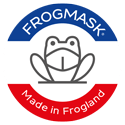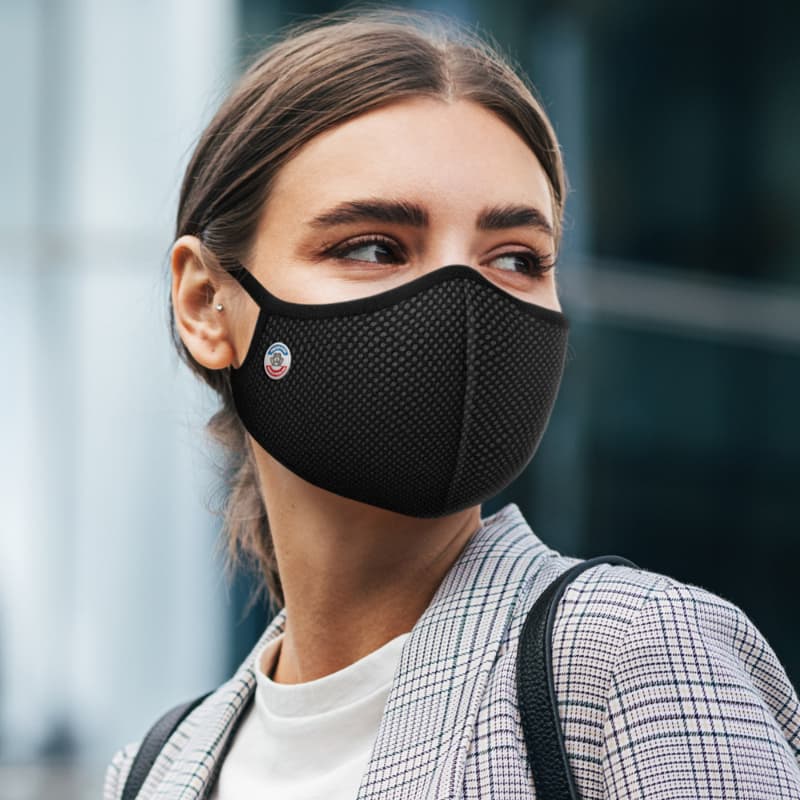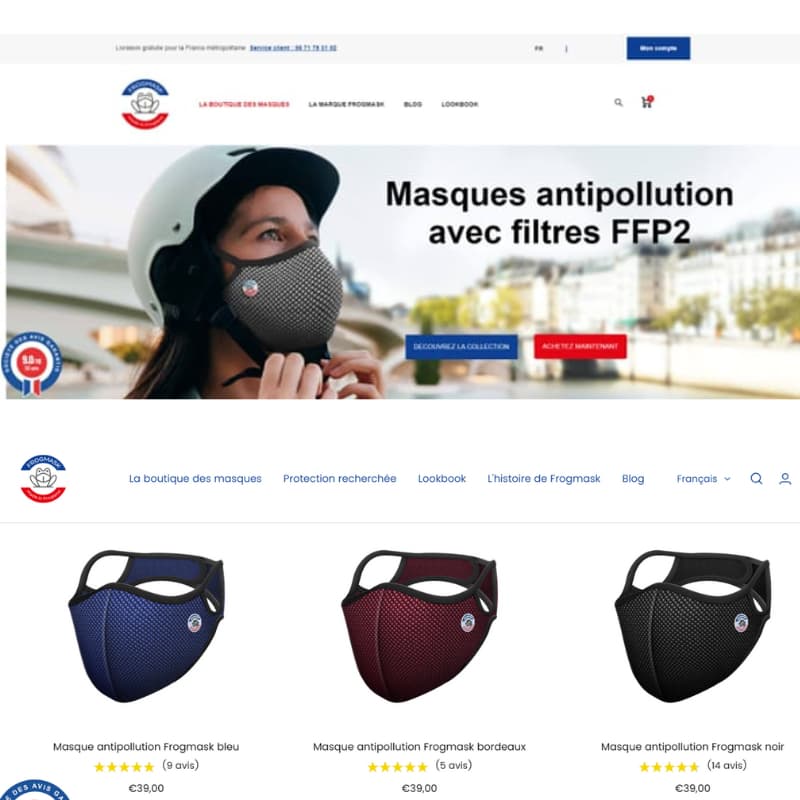Multiple Chemical Sensitivity (MCS) is, with hypersensitivity to electromagnetic fields, an environmental disease also called Idiopathic Environmental Intolerance (IEI). It was identified in 1950 by the American allergist Theron G. Randolph. Although it is not officially recognized by the World Health Organization, MCS syndrome would still affect 12% of the world population. Let's see how to protect yourself and how a Frogmask can protect from Multiple Chemical Sensitivity?
What is Multiple Chemical Sensitivity?
Multiple Chemical Sensitivity is a complex medical condition characterized by severe symptoms that occur after exposure to even low levels of chemicals that are ubiquitous in our everyday environment. These chemicals can include perfumes, cosmetics, pesticides, household cleaners, fresh paint fumes, home building materials, fertilizers in the countryside, and industrial and cigarette smoke. Symptoms vary greatly from person to person but can include headaches, fatigue, nausea, dizziness, breathing problems, and skin irritations.
The exact origin of MCS remains poorly understood by the medical community, making its diagnosis and treatment particularly difficult. Thus, this pathology, different from allergies, significantly impairs the quality of life of those who suffer from them. Even within their own homes, they are poisoned and some have to move to less polluted areas. They may also be forced to stop going out to public places (transport, shops, school, work, etc.), gradually leading them to social isolation.
Symptoms become more severe as the body reacts more easily when exposed to chemicals.
How to diagnose MCS?
When symptoms such as nausea, fatigue, dizziness or chronic migraines, asthma, inflammation of the skin, joints, gastrointestinal tract and respiratory tract appear, it is advisable to perform tests of the nervous system, sinuses, lungs, T-cell subsets, chemical antibodies and autoimmunity . If four of these seven systems are abnormal, the diagnosis of MCS is confirmed.
There are very few specialized consultations in environmental medicine. Professor Belpomme and his team are pioneers in these pathologies in Paris.
How to cure chemical hypersensitivity?
Unfortunately, there is currently no specific treatment to get rid of MCS . The priority is to eliminate the products and substances that cause the symptoms.
Minimizing contact with chemicals helps prevent very uncomfortable ailments for those who suffer from them. In fact, in some cases, a significant reduction in exposure can allow the body to recover to a certain extent, reducing sensitivity in the long term.
In addition to removing sources of chemical odors as much as possible, using a air purifier quality helps reduce airborne chemical molecules.
A medical grade air purifier has three levels of filters (a pre-filter, a HEPA 13 or 14 filter, and an activated carbon filter). These filters remove up to 99% of volatile organic compounds and 99.95% of airborn fine particles. The activated carbon filter captures or adsorbs some of the odors responsible for symptoms in people with chemical hypersensitivity. This filtration system contains two unique technologies:
- Ionization, which allows positively charged particles to be negatively charged to cause them to fall to the ground (allowing easy disposal).
- Photocatalysis (or cold catalysis), a final level of filtering, which transforms the captured polluting particles into vapor and CO2.
Outdoors, the use of an FFP2 mask helps reduce exposure to odors. This standard announces a minimum of 94% filtration of particles present in the air up to 0.4µm. For 100% filtration, you should opt for a gas mask with filter cartridges.
Finally, adopt a healthy diet rich in anti-inflammatory nutrients and engaging in stress-reducing activities like yoga or meditation can support overall health and potentially reduce sensitivity.
Importance of choosing the right mask
Protection from chemical exposures is crucial for people with MCS because of the severity of symptoms that even low levels of exposure can trigger. For these individuals, avoiding harmful substances is not just a matter of convenience, but an absolute necessity to maintain an acceptable quality of life.
Wearing a mask that is specifically designed to filter chemicals and particles in the air can provide a significant protective barrier. This allows people with MCS to participate in daily activities with a reduced risk of exposure to triggers. Additionally, using a properly fitted mask can help reduce the frequency and severity of reactions, contributing to better management of MCS symptoms.
Why choose a Frogmask against MCS?
Several people with MCS among Frogmask users tell me that their life is much less complicated when they wear a Frogmask even though the materials are not natural.
Filters are made in Italy from Meltblown polypropylene like all FFP2 masks on the market.
The body of the Frogmask mask is made of 3D Mesh made from Oeke-Tex certified Polyethylene (PE). This label guarantees the absence of toxic and harmful substances for human health and the environment (or a concentration in too low a quantity to represent a proven risk).
Tips for using and maintaining your Frogmask mask
It is recommended to wash the mask before use by hand or machine up to 60°C. Then it is advisable to wash it regularly (depending on the frequency of use) to remove impurities that are captured in its structure.
Filters should be changed every 2 to 3 weeks depending on the frequency of use and the level of pollution or dust.
It is important to note that while these strategies may help manage MCS symptoms, unfortunately there is currently no known cure. Management of the condition relies on individual adaptation and avoidance of triggers.




